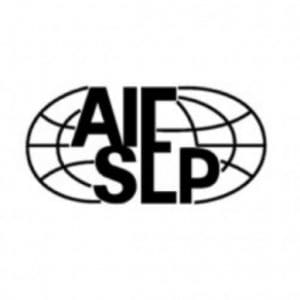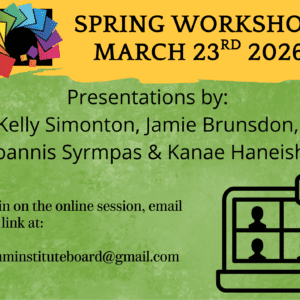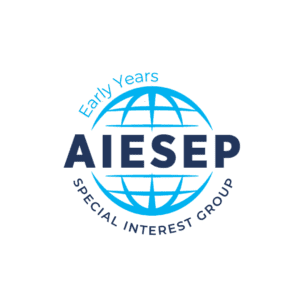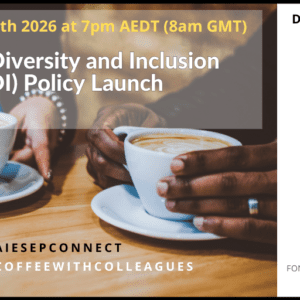On June 19-22, 2019, the AIESEP International Conference will be held at Adelphi University in Garden City, NY. The conference theme is Building Bridges for Physical Activity and Sport in order to inspire partnerships, connections and shared opportunities for physical education and lifelong physical activity, play and sport through institutions of higher education, schools and communities. The 2019 scientific program invites research, research applications, and theoretical presentations from multiple perspectives on physical education, sport pedagogy, physical activity and exercise for young children, youth and adults
THE FOLLOWING SUB-THEMES WILL BE EXPLORED THE 2019 CONFERENCE
1. Physical Education and Physical Literacy
Physical education includes instructional school based programs intended to help children and youth develop their capacity to move with competence and confidence in a wide variety of physical activities in multiple environments that benefit the healthy development of the whole person. Presentations in this sub-theme address the development, implementation and evaluation of quality physical education, physical literacy programs, health education, and school/community programs.
2. Professional Preparation for Health and Physical Education, Sport, and Physical Activity.
This sub-theme includes papers on teacher education and professional development for health and physical education teachers, and professional preparation for physical activity leaders and sport coaches, as well as administrators and policy makers who can develop and deliver programs in a variety of settings and for various populations, e.g., early childhood, childhood, early and later adolescents, special populations, low-income and minority students, families, and communities, and other special groups
3. Physical Activity and Public Health
Public health aims to address health problems of communities as a whole and to influence policies that affect the health of individuals and communities. Presentations in this theme address initiatives that aim to deliver physical activity to improve health and well being of youth and families, health literacy, advocacy to engage and educate key decision makers about the need for and health impact of physical activity, and policy work to ensure equal access to resources for quality programs. This theme also includes professional preparation that focuses on leadership for providing opportunities that inspire health enhancing physical activity in all levels of society, and to prevent or ameliorate chronic and lifestyle diseases.
4. Social-Emotional Learning through Physical Activity and Sport
Physical activity, play and sport can contribute to the development of emotional, social, moral and ethical competencies. Presentations in this sub-theme examine the relationships and connections of play, sport and physical activity experiences to social-emotional learning and development, attitude, motivation and socio-cognitive variables, prevention and intervention on contemporary issues such as suicide, bullying, trauma and conflict, and interventions involving youth and adults in physical activities that intentionally foster developmental assets (e.g., values, commitment to learning, social competencies, positive identity) and surround participants with protective factors (e.g., support, relationships, experiences, resources, opportunities) that have been shown to be important facilitators of personal development. Also included in this theme are professional preparation approaches to address these goals.
5. Youth and Community Development
Sport and physical activity can contribute to active pro-social participation, inclusion, citizenship and peace building. Sport can bring individuals and communities together highlighting commonalities and bridging cultural and ethnic divides. Sport can provide a forum to learn and practice skills such as self-discipline, confidence, caring and leadership and core principles of tolerance, cooperation and respect. As a vehicle for developing civic responsibility, service to others, and community connection, sport and physical activity can support stronger communities. Presentations in this sub-theme focus on the use of physical activity and sport for youth and community development, and professional preparation that addresses these aims.
6. Maximal Individual and Team Performance
Presentations in this sub-theme address initiatives, strategies, or approaches for improving and enhancing individual sport or activity performance and team performance in sports, adventure, fitness, dance, as well as conditioning and rehabilitation for children and adults, including those with disabilities, high performance or elite athletes, sport teams, and other special populations.
ACCEPTED PAPERS WILL BE PRESENTED IN THE FOLLOWING FORMATS
Oral paper presentation
Individual or small group presentations (approximately 12-20 minutes), are grouped in parallel sessions with papers on comparable topics. Abstracts are rated on the clarity of research question(s) and/or focus of enquiry, quality of the research or potential research, significance for educational practice, policy or theory, and quality and clarity of writing. If applying for an oral paper presentation please submit an abstract of 300 words.
Poster presentation
Individual or small group electronic poster presentations, accompanied by the author(s). Quality poster presentations must include a clear statement of the research, research methods, results, discussion, and contribution of the presentation to the field of study and conference theme. Originality of the topic, visual design, layout, language, and oral presentation are also important.
If applying for a poster presentation please submit an abstract of 300 words.
Roundtable discussion
Short presentations that initiate interaction and discussion among up to 10 attendees focused on issues related to a chosen topic. If applying for a roundtable discussion, please submit an overall abstract of 200 words describing the project or issue. Roundtables are especially suited to the following:
● Graduate student research or works in progress
● Technology integration and application in health and physical education, physical activity, sport and professional preparation
● Online learning success stories, issues and challenges
Symposium
Self-organized seminars of up to four papers on a similar topic and presented in the same session and as relevant to the conference theme. If applying for a symposium, please submit an overall abstract of 300 words describing the symposium theme and its importance, along with an abstract of 200 words for each symposium paper.
When submitting papers for a symposium the lead person should login and add themselves as Author 1 and the other participants in the symposium as Author 2, 3 etc. In the field ‘Title and abstract’ please type the title for the symposium and the overall abstract of 300 words first. Then upload a pdf or Word document with the symposium papers as follows: Paper 1: Title. Abstract; Paper 2: Title. Abstract, etc. Preference will be given to symposia that demonstrate cohesiveness across presentations. Symposia will be accepted or rejected in total.
Go HERE for submission GUIDELINES and INSTRUCTIONS: https://aiesep2019.adelphi.edu/call-for-papers/



